Although I've been working with VBA for Excel for quite a long time, I've one problem I cannot solve by myself. I've described it below, hope to get some help or advice.
I'm using Excel 2007 and Windows XP, all updated with newest patches.
I'm very often using following code to get data from another workbook:
Set conn = New ADODB.Connection
conn.Open "Provider=Microsoft.Jet.OLEDB.4.0; Data Source=g:\source.xls;Extended Properties=Excel 8.0;"
Sql = "SELECT Field1, Field2 FROM [Sheet1$]"
Set rst = New ADODB.Recordset
rst.Open Sql, conn, adOpenForwardOnly
Worksheets("Results").Range("A2").CopyFromRecordset rst
rst.Close
Set rst = Nothing
conn.Close
Set conn = Nothing
As simply as can be - just connect to file and get some data from it. It's working perfect as long, as the source file that is located on a common network drive (g:\source.xls) is not opened on another computer.
When some user on another computer has opened the file and I try to execute the following code, I notice one thing that I'd like to get rid off: the source Excel file is opened (in a read-only mode) on my computer and it's not closed after the connection to that file has been closed. What's worse, even if I close this source file manually, it leaves some garbage in my file, like it was never closed: see the picture after couple of code execution (the source files has been closed before):

I started to believe it's a bug that cannot be solved - hope I'm wrong :)